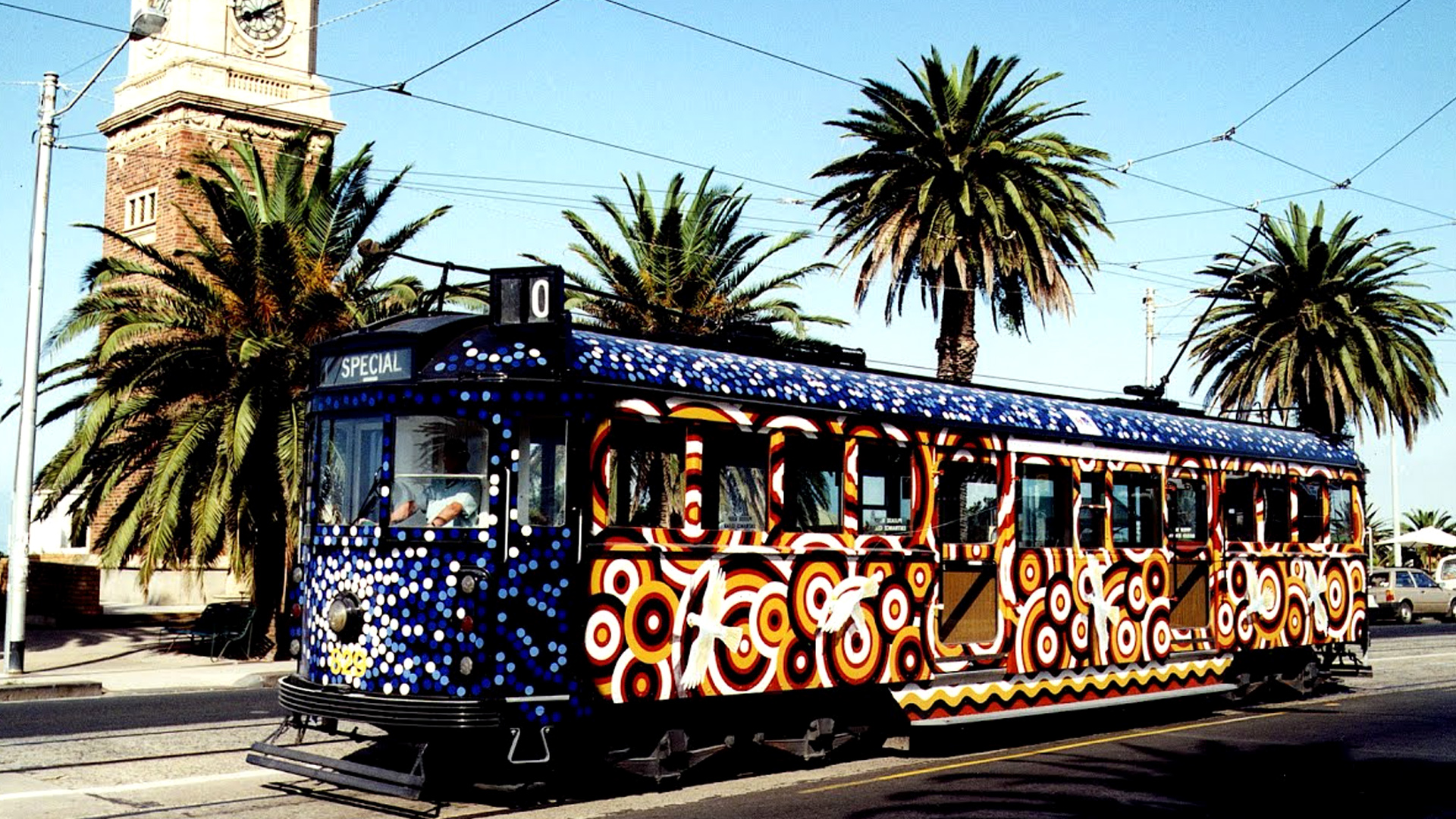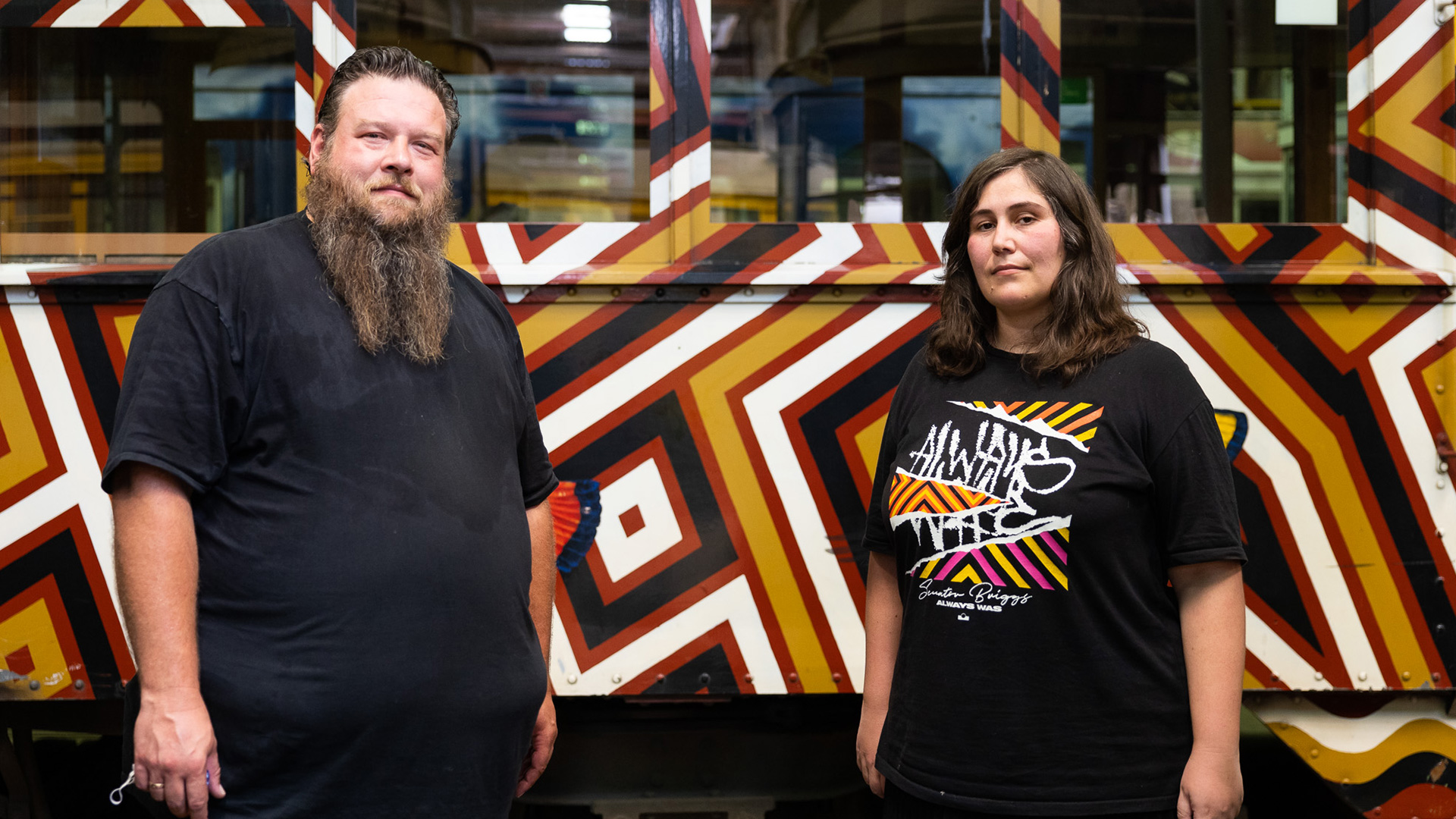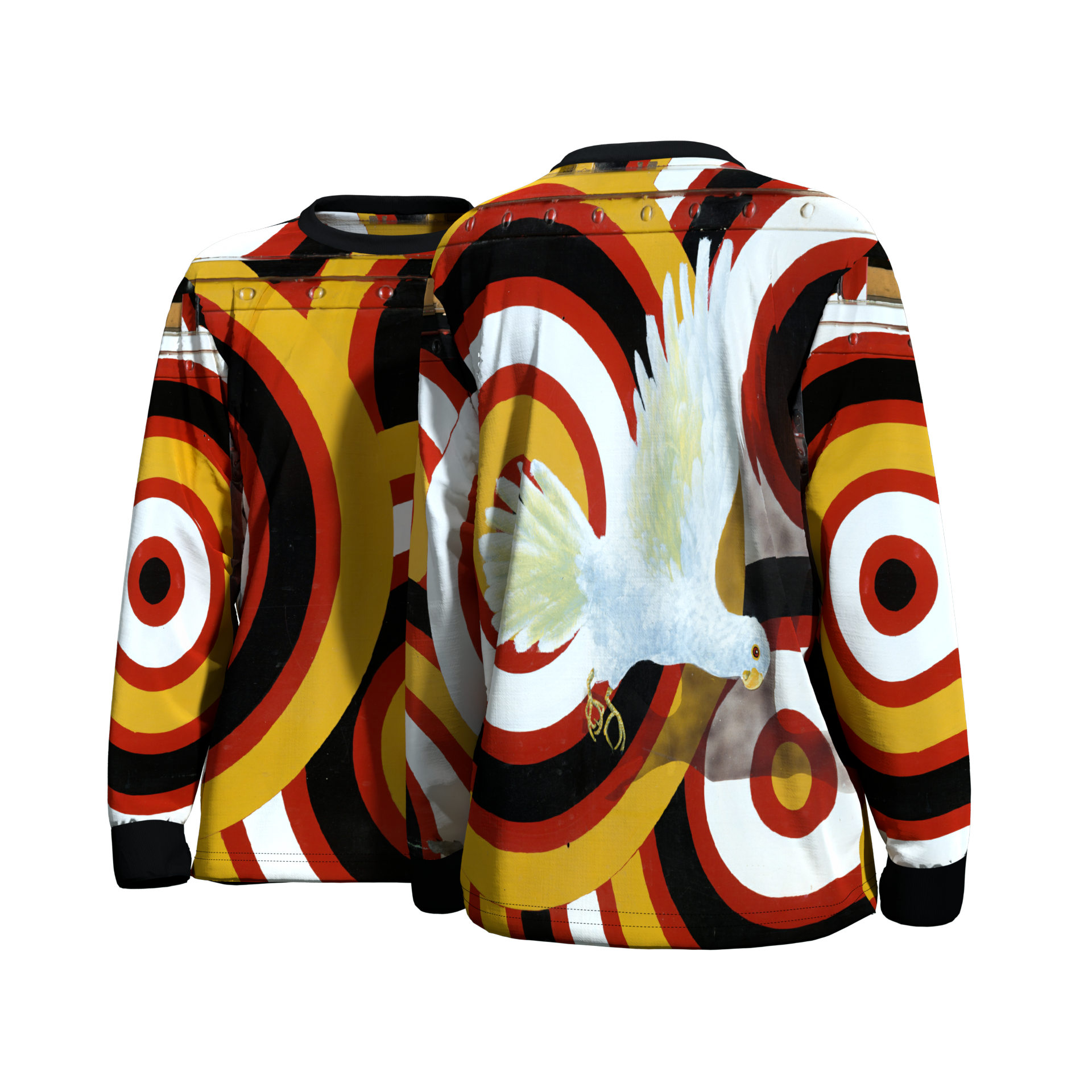
Your guide to 2022 First Peoples Melbourne Art Trams artists
Meet the artists behind the 2022 Melbourne Art Trams and how their design speaks to theme of being ‘Unapologetically Blak’.
2022 CURATORIAL STATEMENT
‘Unapologetically Blak’ is the theme for the 2022 Melbourne Art Trams, curated by Boon Wurrung artist, curator and cultural consultant, Jarra Karalinar Steel.
‘Unapologetically Blak’ invites First Nations artists who are either Victorian Traditional owners, or a First Nations person residing/working in Victoria, to respond to ideas of family and kin, connection and care of country, personal expressions of culture, language, and blak excellence.
The theme is a call for self-determined expressions, recognising the dynamic ways of existing as a First Nations person, living in so called Victoria; a celebration of our success, our growth, and our continued desire to be stronger as a peoples; recognising our mob disrupting, and redefining what being blak means for them, and that we can, and will, continue to do what our passions are, regardless of the glass ceiling that attempts to hold us.
Creating space for these diverse identities allows for conversations around individual identities within a community of many realities, and honouring the peoples that have grown within this space. We have not only survived, but are thriving, and creating footsteps worth following for our future generations.
The concept pays homage to the 1994 collaborative First Nations group exhibition, Blakness: Blak City Culture! featuring the work of Destiny Deacon. Curators of the exhibition Clare Williamson and Hetti Perkins described Destiny Deacon’s development of the term ‘Blak’ as “part of a symbolic, but potent strategy of reclaiming colonialist language to create means of self-definition and expression”.
Journalist Kate Munro reflected on this contribution more recently in her piece, Why ‘Blak’ not ‘Black’, stating that, “Deacon staunchly redefined both the spelling and the meaning of the word ‘black’ as a direct response to non-Indigenous people's labelling and consistent misrepresentations of our people”.
The brief to artists: Be bright, bold and Unapologetically Blak.
TRACK THE TRAMS
TRAMTRACKER APP

Lin Onus (Yorta Yorta)
Reproduction of Tram No. 829 (1991)
Tram number : 3023, C1 Class
Tram route : 48, 109
About this tram :
This design is a recreation of Lin Onus’ 1991 Art Tram. Originally created by the artist Lin Onus and painted on the tram by Lin, assisted by his son Tiriki not far from the Aboriginal Advancement league. Lin described the design as symbolising the balance of opposites to achieve harmony: circles and diamonds, day and night, black and white cockatoos. The design is inspired by an amalgam of traditional Aboriginal thoughts and beliefs from all over Australia.
Patricia Mckean (Gunditjmara/Kirrae Wurrong)
Not sorry for, Who we are
Tram number : 3532, D1 Class
Tram route : 5, 6, 16, 72
Artist Statement :
“In the centre of the piece is a reference to an amazing elder, an elder who is my grandfather Banjo Clarke. Grandpa is a big inspiration to me because of his leadership, he helped with land
rights and many other connections back in the day. He was respectful and wise; he is also known as "the wisdom man". Him looking up to the stars centres the universe of now which I am a part of as a young person today.”
Tegan Murdock (Barapa)
Artwork : Weaving Culture Through Community
Tram number : 5002, D2 Class
Tram route : 6, 19
Artist Statement :
“I envisioned my weaving piece highlighted on one of the trams as a symbol of weaving culture through-out community, sharing my weaving with the world, showing that we are still here practicing our beautiful culture unapologetically.
“Each row of weaving resembling the different tracks the trams takes throughout Naarm. Each seed resembling people from all walks of life that are here to sit, listen and learn from us. Feathers representing our strong connection to country and the cleansing that our people have been doing for thousands of years keeping us strong in spirit. Weaving culture through community is what my family have been doing proudly since I was a little girl.”
Darcy McConnell / Enoki (Yorta Yorta/Dja Dja Wurrung)
My Aunty once told me
Tram number : 2017, B Class
Tram route : 58, 59
ARTIST STATEMENT :
“To be ‘Unapologetically Blak’ is to have no shame in our identity as Aboriginal people. Us mob struggle with our identity and our place in the community due to colonisation so I wanted to create a piece that would spark a sense of pride within mob to feel seen and to have a reminder that travels across Melbourne so on those days they don’t feel ‘Blak’ enough they can find a sense of pride in my tram design.”
Dr Paola Balla (Wemba-Wemba/Gunditjmara)
BLAK LOVE
Tram number : 2012, B Class
Tram route : 3, 3a, 64, 67
ARTIST STATEMENT :
“Responding to 'Unapologetically Blak', I made new work about BLAK LOVE. It carries the practice of BLAK LOVE as sovereign, unapologetically Blak, strong, beautiful, unconditional and weaves BLAK LOVE into the future and through city streets. Carrying passengers on a journey of BLAK LOVE, holding images of weaving, bush dyeing, storytelling, and sovereign ways of being Unapologetically Blak.”
Louise Moore (Wamba)
Living With The River
Tram number : 236, A Class
Tram route : 70, 75
ARTIST STATEMENT :
“My artwork recalls the story of our home, our family and community. Through my work, I am aiming to protect the past and provide guidance to the future. We must preserve these images to keep the story telling alive and create a bridge between our life on the riverbank, collecting our food, digging for mussels, trapping fish, hunting for swan eggs and gathering fruits and herbal medicines. This art also preserves the memory of the old people who taught us to be Wamba. My identity is my country—my family and community is defined by my country, language and knowledge.”

LIN ONUS X ALPHA60 X RISING LONG SLEEVE TEE—WHITE COCKATOO — $90
Artist Lin Onus’s 1991 Melbourne Art Tram returns in two tees, made in collaboration with ALPHA60. The designs combine balanced opposites representing First Peoples groups and the harmonious moieties of yirritja and dua.